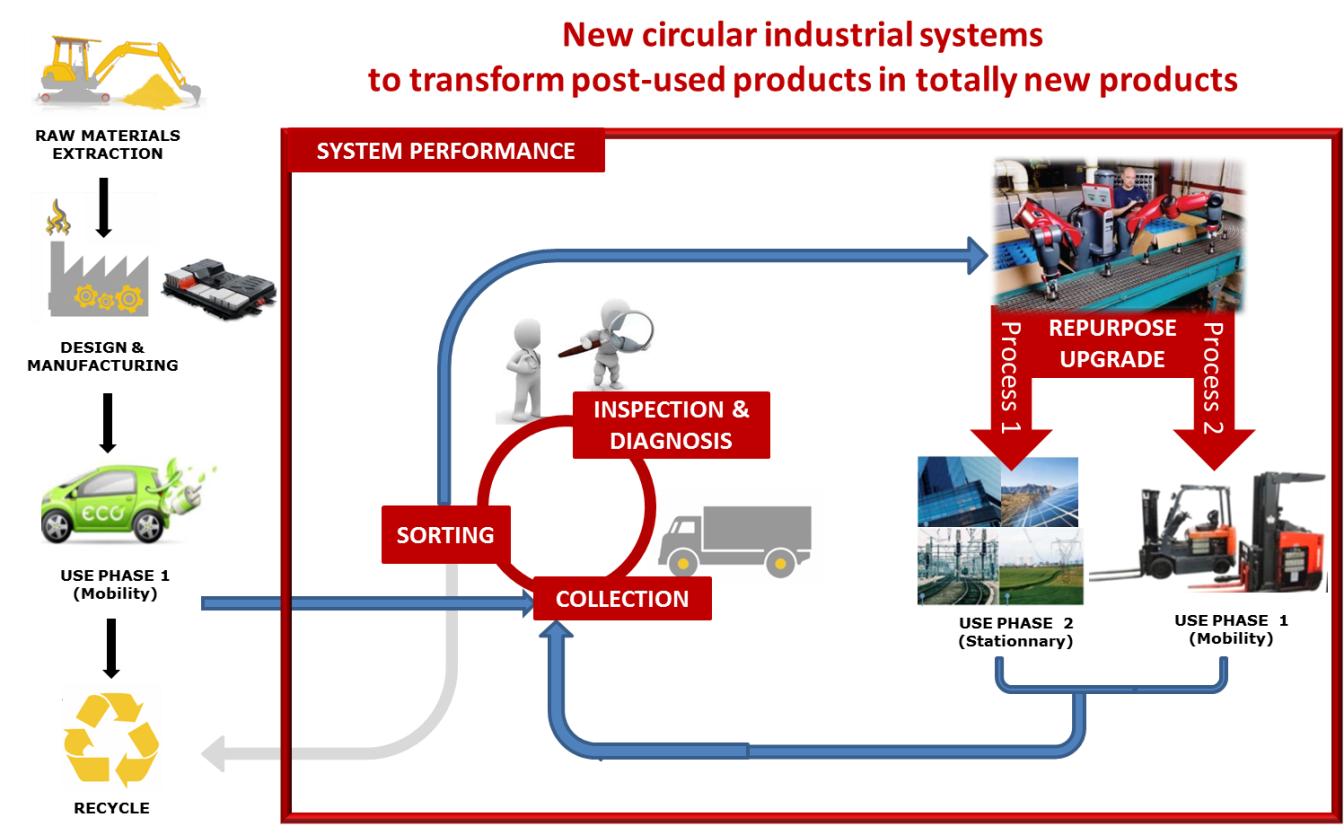- Share
- Share on Facebook
- Share on X
- Share on LinkedIn

The consortium formed for the CDTool CIRCULAR aims to develop the conditions of existence as well as the technologies necessary for creating new circular industrial systems capable of transforming products that are no longer used into new products as new products. The aim is to remove several barriers that prevent the transition from a linear "produce-consume-discard" mode of production/consumption to a circular "produce-consume-reuse" mode of production/consumption. This project is part of the Horizon Europe program "Destination 1: Climate-neutral, circular and digitized production" and aims to - find industrial solutions to provide answers adapted to market needs, with competitive "last generation" products that are increasingly personalized, - reconsidering the place of Humans in the production system, - better managing the efficiency of resources such as materials and energy. We would like to see the project extended to consolidate the community created over the last few years, to continue with the lines of research already underway (axis 1, 2 and 3) and to start new research actions (axis 4 and 5).
Axis 1: Implementation of 4.0 technologies in the circular economy context.
Axis 2: Diagnosis and prognosis in relation to product circularity.
Axis 3: Measurement of the conditions of existence, performance and impact of circular systems.
Axis 4: Management of circular value chains on a territorial scale.
Axis 5: Supporting the transition towards new circular industrial scenarios.
The Grenoble researchers involved in this project will focus on resolving issues related to the management and implementation of agile circular industrial systems at the scale of territory with the help of tools such as digital twins and AI for managing value chain data throughout the product lifecycle. They will share their expertise in industrial engineering, integrated design, operations research, robotics, sociology, ergonomics, economics, to be able to make this industrial transition effective. The place of Humans in decision-making and the objective of reducing environmental impacts remains at the heart of the motivation. The interdisciplinarity put in place in this project will allow the consortium to be the first research center to address these questions of the future industry, by considering both technological, digital, environmental and human aspects.
In the context of this applied research, both deductive and inductive approaches will be used. The results will be methodological (support for companies in the transition, formulation of guidelines, etc.), technological (with the pursuit of developments for the use of the cobotics and digital technologies such as AR/VR in production systems) and theoretical (with multidisciplinary synergies). New models of organization and behavior of productive systems and value chains will have to be invented in connection with data sciences and human sciences to feed future decision support tools. Given the current progress of the consortium, our work could also take the form of action research and/or be based on experiments. For this, we will rely on a portfolio of case studies linked to several companies or organizations, mainly from the region, covering different sectors of activity.
The consortium will bring together 8 Grenoble laboratories in the fields of ICST, HSS and IS: G2ELAB, GAEL, G-SCOP, LEPMI, LIG, LIP/PC2S, CEA/LITEN, PACTE as well as the SFR INNOVACS and the S.MART and FabMSTIC platforms
- Share
- Share on Facebook
- Share on X
- Share on LinkedIn